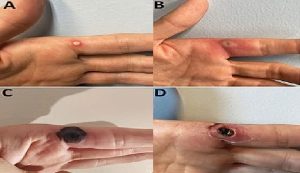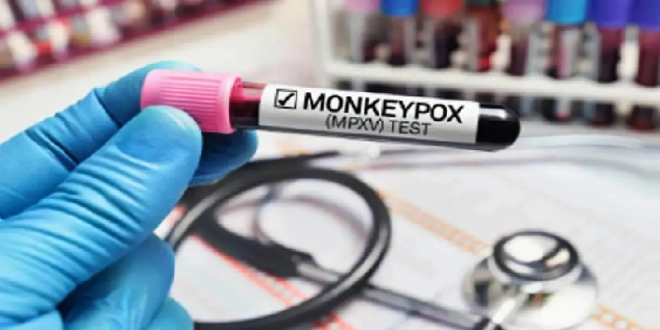10-09-2024
KINSHASA: It has been a year since the first outbreak of a new more deadly variant of the mpox virus was first reported in central Africa. Since the start of the year, more than 20,000 cases and well over 500 deaths, most of them children, have been officially reported, but the actual numbers are likely higher. The epicentre of the outbreak has been eastern Democratic Republic of the Congo (DRC), which has suffered the overwhelming majority of deaths.
 In mid-August, the World Health Organization declared the mpox outbreak a “public health emergency of international concern”. Countries around the world looked on nervously, but few seemed to recognize that this was all avoidable, if only we would stop treating a large part of humanity as disposable.
In mid-August, the World Health Organization declared the mpox outbreak a “public health emergency of international concern”. Countries around the world looked on nervously, but few seemed to recognize that this was all avoidable, if only we would stop treating a large part of humanity as disposable.
Two years ago, we had already had a wake-up call when a less deadly variant of mpox spread to Europe and the United States. Vaccination campaigns were rolled out fairly rapidly. Yet, no lessons were learned about the dangers of ignoring diseases in Central Africa.
After the moment of panic passed, at least in Washington, London and Brussels, Western governments built massive vaccine stockpiles, and kept them to themselves. Those parts of Africa where mpox has been endemic for two decades were forgotten, left without vaccines even while millions were produced.
It is only in the last week that Africa received its first vaccines. On August 27, USAID delivered 10,000 doses to Nigeria. On September 5, the DRC finally received 100,000 doses. There is no question that vaccinations could significantly contain the spread of mpox but these donations came late.
There are plenty of players to share the blame for this state of affairs, but the heart of the problem, as we saw in the obscene inequality which characterized the COVID-19 global vaccine rollout, is that some lives simply don’t seem to matter. Or rather, they matter significantly less than the accumulation of wealth by the few. They matter less than profit.
 Two companies produce the main mpox vaccines, a Japanese company called KM Biologics and a Danish corporation called Bavarian Nordic. Bavarian’s share price has spiked in recent weeks, thanks to the mpox outbreak. The vaccine was produced thanks to massive injections of public cash but the price tag charged by Bavarian Nordic $200 to inoculate each individual is out of reach of many African countries. Most of the doses it produces go to the US and other rich countries.
Two companies produce the main mpox vaccines, a Japanese company called KM Biologics and a Danish corporation called Bavarian Nordic. Bavarian’s share price has spiked in recent weeks, thanks to the mpox outbreak. The vaccine was produced thanks to massive injections of public cash but the price tag charged by Bavarian Nordic $200 to inoculate each individual is out of reach of many African countries. Most of the doses it produces go to the US and other rich countries.
US advocacy group Public Citizen says it fears “that Bavarian Nordic may be exploiting the latest global health crisis, putting profits over people”. If the company would share its technology with factories in low and middle-income countries, the group says, the price could be slashed. Similar vaccines are produced for $4 a dose or less. What’s more, Africa would then be in a better position to meet its own needs in the future but the company won’t do that. It claims that’s not how its business model works. Instead, it is encouraging rich governments to buy full-priced vaccines and then donate them but this hasn’t happened either. With only a few exceptions like Spain, which pledged to donate 500,000 doses from its own stockpile, rich countries’ donations have been a fraction of what’s needed. Nor will these donations help prepare the DRC in future crises. Campaigners are clear both Bavarian Nordic and KM Biologics must share their research with other manufacturers to increase supply and bring prices down.
It is claimed that accessing vaccines is only one part of the problem, that the regulation and administration of vaccines is a massive challenge. That is true enough, but it hardly justifies hoarding technology and keeping prices high. (Int’l Monitoring Desk)
 Pressmediaofindia
Pressmediaofindia




